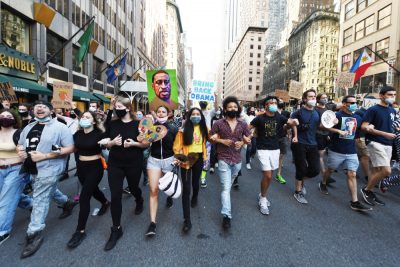Featured
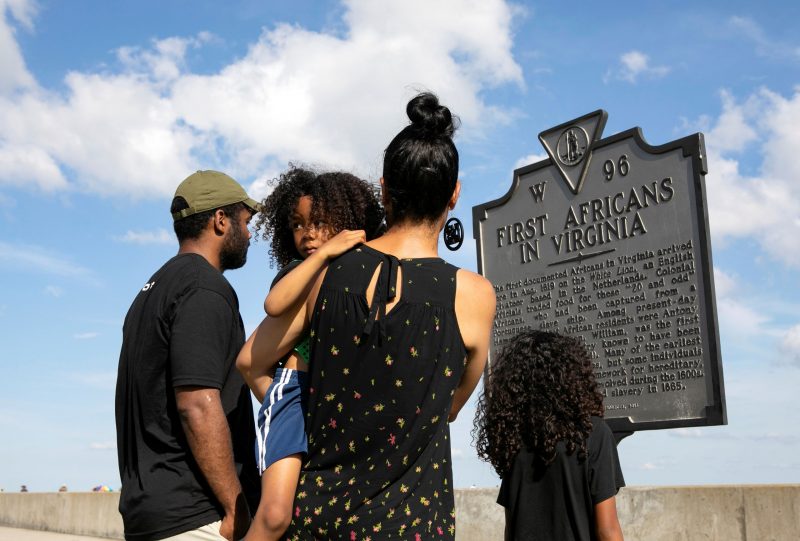 The Republican Party, Racial Hypocrisy, and the 1619 Project. By Jelani Cobb / The New Yorker
The Republican Party, Racial Hypocrisy, and the 1619 Project. By Jelani Cobb / The New Yorker
As the G.O.P. seeks to deny Americans knowledge of their own history, Nikole Hannah-Jones is denied tenure. It is worth noting that the 1619 Project, which first appeared in the Times Magazine almost two years ago, on the four-hundredth anniversary of the arrival of the first African captives in the British colonies in North America, stirred currents that were not entirely unfamiliar. A very specific divide animated these conflicts, and it underlies the G.O.P.’s current efforts to rescue Americans from an accurate account of their own history. Read more
Related: When it comes to knowing U.S. history, we should all be ‘woke.’ By Michael Gerson / Wash Post
Political / Social
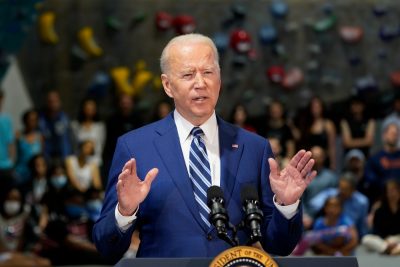 Biden Calls Texas Voting Restrictions Bill ‘Un-American.’ By Chas Danner / New York Magazine
Biden Calls Texas Voting Restrictions Bill ‘Un-American.’ By Chas Danner / New York Magazine
The Texas Senate passed a bill early Sunday morning which would add a range of new voting restrictions in the state. The GOP-led bill, which Texas lawmakers finalized on Saturday morning and seems certain to soon become law, would cap voting hours, bar drive-thru voting, limit mail-in voting, and prevent local expansion of voting options, among other measures. It is part of a nationwide wave of state-level efforts to restrict voting rights by Republican lawmakers following Biden’s victory last year, which Donald Trump and his allies continue to attempt to discredit. The Texas bill seems primarily designed to roll back and prevent further efforts to expand voting access in the state’s largest and most diverse counties, where many Democratic voters and voters of color reside. Read more
Related: Biden is getting a big bounce with Hispanics. By Harry Eaten / CNN
Related: Efforts to Advance Racial Equity Baked In Throughout Biden’s Budget. By Michael D. Shear / NYT
 Kamala Harris Talks Being The First With History-Making Naval Academy Graduate. By
Kamala Harris Talks Being The First With History-Making Naval Academy Graduate. By
Vice President Kamala Harris, a repeat history-maker, spoke to midshipman Sydney Barber, the first Black woman brigade commander at the U.S. Naval Academy, about being a trailblazer — and told Barber to “make sure you’re not the last.” Read more
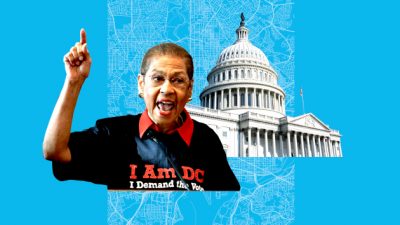 Eleanor Holmes Norton’s Long, Lonely Fight to Gain DC Voting Rights. By Matt Cohen / Mother Jones
Eleanor Holmes Norton’s Long, Lonely Fight to Gain DC Voting Rights. By Matt Cohen / Mother Jones
Her decades-long work may finally be paying off. In early January, she yet again introduced her bill to grant statehood to the District of Columbia—something she has done for each of the past 14 sessions of Congress—except this time it came with 202 cosponsors and a Democrat in the White House who would sign the bill. After several sessions of spirited debate on the House floor, it passed in late April with universal support from House Democrats. Read more
 McConnell focuses ‘100 percent’ on blocking Biden — and zero percent on America. By Dana Milbank / Wash Post
McConnell focuses ‘100 percent’ on blocking Biden — and zero percent on America. By Dana Milbank / Wash Post
 Karine Jean-Pierre makes history in White House briefing room. By Lauren Egan / NBC News
Karine Jean-Pierre makes history in White House briefing room. By Lauren Egan / NBC News
Karine Jean-Pierre, White House principal deputy press secretary, took the podium in the James S. Brady Briefing Room for the first time Wednesday, becoming the first openly gay spokeswoman and the second Black woman to do so. Jean-Pierre, 43, follows Judy Smith, who served as deputy press secretary to President George H.W. Bush in 1991. Smith was the inspiration for the Olivia Pope character on the hit TV show “Scandal.” “It’s a real honor to be standing here today,” Jean-Pierre said. “Clearly the president believes that representation matters and I appreciate him giving me this opportunity.” Read more
 Fox News drama: Juan Williams reportedly forced out at “The Five” by co-host Greg Gutfeld. By Zachary Petrizzo / Salon
Fox News drama: Juan Williams reportedly forced out at “The Five” by co-host Greg Gutfeld. By Zachary Petrizzo / Salon
Longtime “liberal” voice will still work for the network — but no longer as a regular co-host on “The Five.” Fox News commentator and political analyst Juan Williams announced that he will no longer appear on “The Five” after reportedly being forced out by fellow co-host Greg Gutfeld. “This is my last day hosting ‘The Five,'” Williams stated on-air late Wednesday evening. “COVID taught me a lot of lessons. As the show goes back to the New York studio, I’ll be staying in D.C. I’ll be working for Fox out of Washington. My work as a Fox News political analyst will continue.” Read more
 Trump regime’s amazing list of crimes keeps getting longer — but we can’t afford to look away. By Chauncey Devega / Salon
Trump regime’s amazing list of crimes keeps getting longer — but we can’t afford to look away. By Chauncey Devega / Salon
Sometimes people refuse to ask a question when they know the answer will be painful. Instead, they convince themselves that not asking the question will make the underlying reality change. Donald Trump and his regime committed many criminal, evil and otherwise despicable acts in plain sight. Those include, with no attempt to be comprehensive: Read more
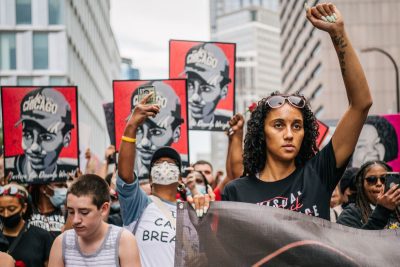 George Floyd’s death one year later: here’s where police reform stands in Minneapolis and other cities. By Sean Collins / Vox
George Floyd’s death one year later: here’s where police reform stands in Minneapolis and other cities. By Sean Collins / Vox
A year after George Floyd’s murder and the worldwide protests it sparked, more than half of US states have passed reform bills, altering policies like use of force, creating new rules about tracking misconduct, and mandating officer interventions during aggressive encounters. Major cities even made moves to aggressively reimagine policing. Some of these changes have been tentative; some have been reversed; others have run up against lawsuits and backlash and red tape; some have been far less than what local protesters have called for. Changing policing, it has become apparent, will not be instantaneous or easy. Read more
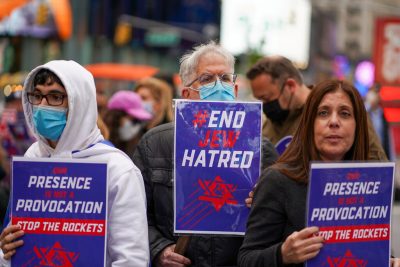 U.S. Faces Outbreak of Anti-Semitic Threats and Violence. Ruth Graham and
U.S. Faces Outbreak of Anti-Semitic Threats and Violence. Ruth Graham and
A brick shattering a window of a kosher pizzeria on Manhattan’s Upper East Side. Jewish diners outside a sushi restaurant in Los Angeles attacked by men shouting anti-Semitic threats. Vandalism at synagogues in Arizona, Illinois and New York. In Salt Lake City, a man scratched a swastika into the front door of an Orthodox synagogue in the early morning hours of May 16. “This was the kind of thing that would never happen in Salt Lake City,” said Rabbi Avremi Zippel, whose parents founded Chabad Lubavitch of Utah almost 30 years ago. “But it’s on the rise around the country.” Read more
Younger Latinos confront immigrant parents on race, Black history. By Carmen Sesin and Cora Cervantes / NBC News
Across the U.S., the racial reckoning following Floyd’s death has led to uncomfortable and at times heated conversations in immigrant families, where younger generations are pushing parents over stereotypes, assumptions and even outright racism against Black Americans. Read more
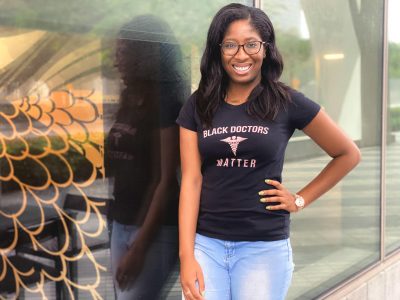 Poor medical care and distrust fuels black patients’ desire for black physicians. By Veronica Zaragovia / NPR
Poor medical care and distrust fuels black patients’ desire for black physicians. By Veronica Zaragovia / NPR
In South Florida, when people want to find a doctor who’s Black, they often end up contacting Adrienne Hibbert through her online website, Black Doctors of South Florida. “There are a lot of Black networks that are behind the scenes,” says Hibbert, who runs her own marketing firm. “I don’t want them to be behind the scenes, so I’m bringing it to the forefront.” Hibbert says she got the idea for the website after she gave birth to her son 15 years ago. Her obstetrician at the time was white, and the suburban hospital outside Miami didn’t feel welcoming to her as a Black woman pregnant with her first child. Read more
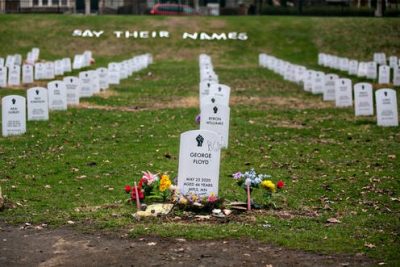 Pain of police killings ripples outward to traumatize Black people and communities across US. By Denise A. Herd / The Conversation
Pain of police killings ripples outward to traumatize Black people and communities across US. By Denise A. Herd / The Conversation
Each year, U.S. police kill about 1,000 people, which equals approximately 8% of all homicides for adult men. This risk is greater for Black men, who are about 2.5 times more likely to be killed by the police than white men. The effects of these killings ripple from the individual victim to their families and local communities as they cope with the permanence of injury, death and loss. People victimized by the police have demonstrated higher-than-usual rates of depression, psychological distress and even suicide risk. Read more
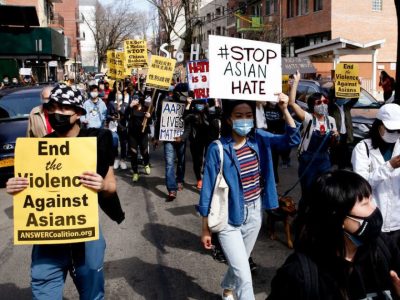 Amid Growing Anti-Asian Racism, A Call For More Research Into Its Health Effects. By Angus Chen / NPR
Amid Growing Anti-Asian Racism, A Call For More Research Into Its Health Effects. By Angus Chen / NPR
Racism against Asians has a long history and anti-Asian hate incidents have been on the rise in recent years. But research into the health effects on Asian Americans of living with such violence is sparse. Health scientists like Chang say that’s been damaging to the Asian community, and the research gap needs to close as soon as possible. Read more
Historical / Cultural
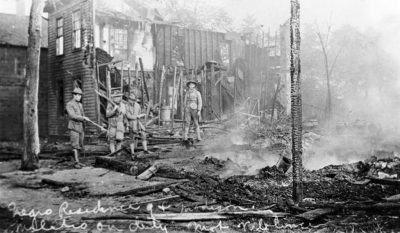 Burned from the land: How 60 years of racial violence shaped America. By Channon Hodge, Breeanna Hare, Tami Luhby, Elias Goodstein, Priya Krishnakumar, Nadia Lancy, Toby Lyles, Amy Roberts and Clint Alwahab / CNN
Burned from the land: How 60 years of racial violence shaped America. By Channon Hodge, Breeanna Hare, Tami Luhby, Elias Goodstein, Priya Krishnakumar, Nadia Lancy, Toby Lyles, Amy Roberts and Clint Alwahab / CNN
“We estimate that there were upwards of 100 massacres that took place between the end of the Civil War and the 1940s,” says William Darity Jr., a Duke University economist who co-authored “From Here to Equality: Reparations for Black Americans in the Twenty-First Century,” with writer and folklorist A. Kirsten Mullen. “And they take place North and South, East and West.” We looked back through research and news clippings, paying particular attention to around 50 racially charged incidents between 1863 and 1923 when people of color lost property or economic opportunity. The events highlighted here reveal how acts of racial violence of different scope played out across the country and targeted various ethnicities. Historians then helped us examine how and why they had occurred and where we still see the impact today. Read more
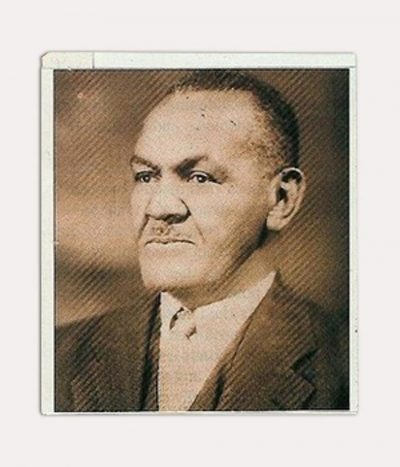 The Bezos Of Black Wall Street. A century ago, O.W. Gurley built an empire of African American businesses in Tulsa. Though it all came burning down in the massacre of 1921, new generations of entrepreneurs rose from the ashes. By Antoine Gara / Forbes
The Bezos Of Black Wall Street. A century ago, O.W. Gurley built an empire of African American businesses in Tulsa. Though it all came burning down in the massacre of 1921, new generations of entrepreneurs rose from the ashes. By Antoine Gara / Forbes
Gurley envisioned Oklahoma as the start of a new life for Black Americans decades after emancipation—and he was ambitious. He ran for county treasurer, was made principal at the town’s school, and ultimately opened a successful general store, which he ran for a decade. By the turn of the century, Gurley and his fellow homesteaders heard tales of giant oil fields in the nearby boomtown of Tulsa. A gusher well called the Ida Glenn Number 1, the first find in the massive Mid-Continent Oil Field, was making local Tulsans rich—and eventually turned no-name wildcatters Harry Ford Sinclair and J. Paul Getty into oil barons. Read more
Related: Anniversary Event for Tulsa Race Massacre Unraveled Over Reparations. Campbell Robertson and
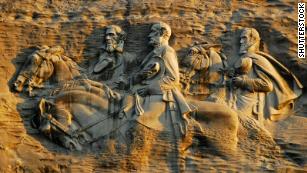 America’s monument to White victimhood. By Nicole Hemmer / CNN
America’s monument to White victimhood. By Nicole Hemmer / CNN
It is fitting that Stone Mountain is in the news now, as we mark the centenary of the Tulsa massacre, an orgy of anti-Black violence followed by a deliberate erasure of the historical record. On their face, the two may not seem related. But together they help clarify the way right-wing grievance politics, which have reached a fever pitch in recent weeks with attacks on everything from critical race theory to mask mandates, function. Those grievance politics not only depend on a false narrative about power and history, but also on ignoring the suffering and oppression of others. Read more
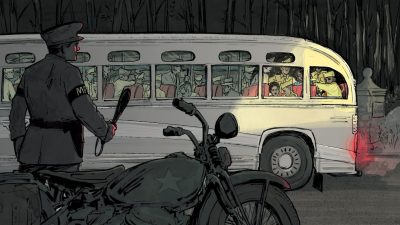 Albert King Is Not Forgotten. By Alexa Mills / Wash Post
Albert King Is Not Forgotten. By Alexa Mills / Wash Post
In 1941, the U.S. military papered over the killing of a young Black soldier by a White officer. Can there be justice 80 years later? Pvt. Albert King’s body was still warm when his killer’s trial began at 3:02 p.m. on March 24, 1941. Sgt. Robert Lummus faced the charge of manslaughter — of willfully, feloniously and unlawfully killing King. Outside the court-martial room at Fort Benning, Ga., under overcast skies, some 50,000 soldiers were training for the possibility that the United States would enter World War II. Read more
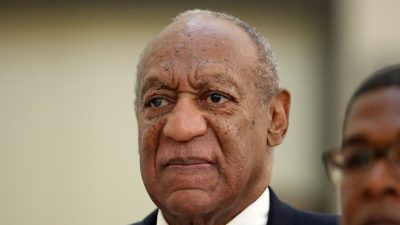 Unrepentant Bill Cosby Denied Parole For Refusing Therapy For Violent Sexual Predators. By Mary Papenfuss / HuffPost
Unrepentant Bill Cosby Denied Parole For Refusing Therapy For Violent Sexual Predators. By Mary Papenfuss / HuffPost
Comedian Bill Cosby’s petition for parole from his 3-to 10-year prison sentence for sexual assault has been denied because he’s refusing required therapy for violent sexual predators. “We knew he was going to be rejected,” Cosby’s spokesperson Andrew Wyatt told Reuters. “He called me and told me that if he didn’t take the course, he would be denied. He has maintained his innocence from the beginning.” Read more
 Howard University Names Its Arts College For Chadwick Boseman. By Anastasia Tsioulcas / NPR
Howard University Names Its Arts College For Chadwick Boseman. By Anastasia Tsioulcas / NPR
On Wednesday, Howard University announced that it has named its newly reestablished College of Fine Arts after one of its most famous alumni: the late actor Chadwick Boseman. News of the school’s naming broke in The Washington Post. Earlier this month, Howard named actor and alumnus Phylicia Rashad as the dean of the fine arts school. Read more
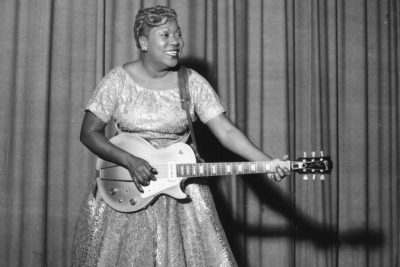 Ladies don’t just sing the blues. They play them, too. By Denise Oliver Velez / Daily Kos
Ladies don’t just sing the blues. They play them, too. By Denise Oliver Velez / Daily Kos
We often hear the terms “bluesman” and “bluesmen” when referring to those Black gentlemen musicians who helped birth, make famous, and sustain a musical genre that has gone on to spawn and influence almost every other American musical movement. Last week on #BlackMusicSunday, we took a look at the birth of the blues. This week we’ll sample the work of “blueswomen.” It’s a very long list, and most of the women in blues did not achieve the fame and fortune of their male counterparts. Sadly sexism, combined with racism, served to diminish the contributions of these sisters who also helped birth, make famous, and sustain this genre that almost all American music is built upon. Shown is Sister Rosetta Tharpe. Read more
Sports
 The ugliness of NBA fans attacking players. By Etan Thomas / The Undefeated
The ugliness of NBA fans attacking players. By Etan Thomas / The Undefeated
I had the honor of attending The ESPYS two years ago when Bill Russell was honored. During the presentation, they showed a video montage of all that he had to endure while winning championships and the racial epithets that were hurled at him night in and night out. Especially after he started speaking out about racism and segregation. And this was from the home fans. Unfortunately, these types of incidents aren’t behind us. In this week alone, we had a fan spit on Trae Young in New York, another fan dump popcorn on Russell Westbrook in Philly, and a group of fans in Utah verbally assault Ja Morant’s family with racial epithets. This all happened on the same night. Read more
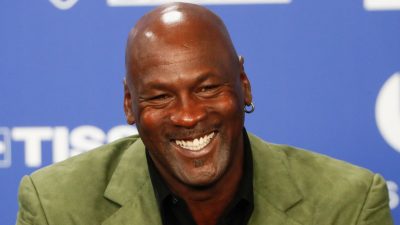 Michael Jordan donates $1M to boost journalism, sports-related studies at Morehouse College. By AP and ESPN
Michael Jordan donates $1M to boost journalism, sports-related studies at Morehouse College. By AP and ESPN
Michael Jordan and Nike’s Jordan Brand are giving $1 million to Morehouse College to boost journalism and sports-related studies. The gift announced Friday will help enrich its journalism and sports program that was originally launched with a donation from director and actor Spike Lee. The school, in a news release, said the donation will help fund scholarships, technology and educational programming for students in those fields. Read more
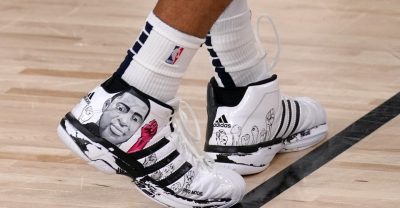 George Floyd’s Murder Forced Athletes to Find Their Voice. By Jemele Hill / The Atlantic
George Floyd’s Murder Forced Athletes to Find Their Voice. By Jemele Hill / The Atlantic
George Floyd’s murder last Memorial Day persuaded a lot of people in sports to use their public profile to fight racism in America. So it was fitting that the NBA, its players’ union, and the WNBA players’ union joined together Tuesday, the first anniversary of Floyd’s death, to publicly challenge Congress to pass the George Floyd Justice in Policing Act. Read more
 Simone Biles should be praised, not punished for achieving a feat that was deemed impossible. By Kylie Cheung / Salon
Simone Biles should be praised, not punished for achieving a feat that was deemed impossible. By Kylie Cheung / Salon
Last week, ahead of the long-delayed Tokyo Olympics this summer, Simone Biles performed a new move at the U.S. Classic: the Yurchenko double pike, captured in a tweet below. The Olympic gold medalist is widely recognized as the greatest gymnast in the world, and her historic delivery of yet another never-been-done-before move shows us this reputation is well-earned. Per the New York Times, the Yurchenko double pike is “so perilous and challenging that no other woman has attempted it in competition, and it is unlikely that any woman in the world is even training to give it a try.” However, the undervaluation of Biles’ performance by judges is bringing attention yet again to how the athlete has repeatedly been punished rather than rewarded for her greatness, and the double standards applied to reception to her performances. Read more
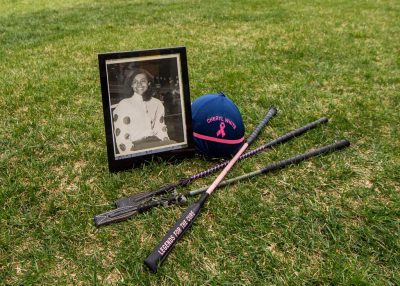 How the First Black Female Jockey Rode Into Oblivion. By Sarah Maslin Nir / NYT
How the First Black Female Jockey Rode Into Oblivion. By Sarah Maslin Nir / NYT
It was an average June morning in 1971 at Thistledown Race Track in North Randall, Ohio, when an average bay filly named Ace Reward broke from the gate. But still, the stands were packed, and the finish line bristled with news crews. Sitting astride Ace Reward was Cheryl White, who soon would become the country’s first ever licensed Black female jockey, in her first official race. After an ambitious sprint, the filly finished dead last. The crowd roared anyway. White was on her way to making history. And she was a 17-year-old girl. Read more
Site Information
Visit our home page for more articles, book/podcast and video favorites. And at the top of this page register your email to receive notification of new editions of Race Inquiry Digest. Click here for earlier Digests.
About Race Inquiry and Race Inquiry Digest. The Digest is published on Mondays and Thursdays.
Use the buttons below to share the Digest in an email, or post to your Facebook, Linkedin or Twitter accounts.
